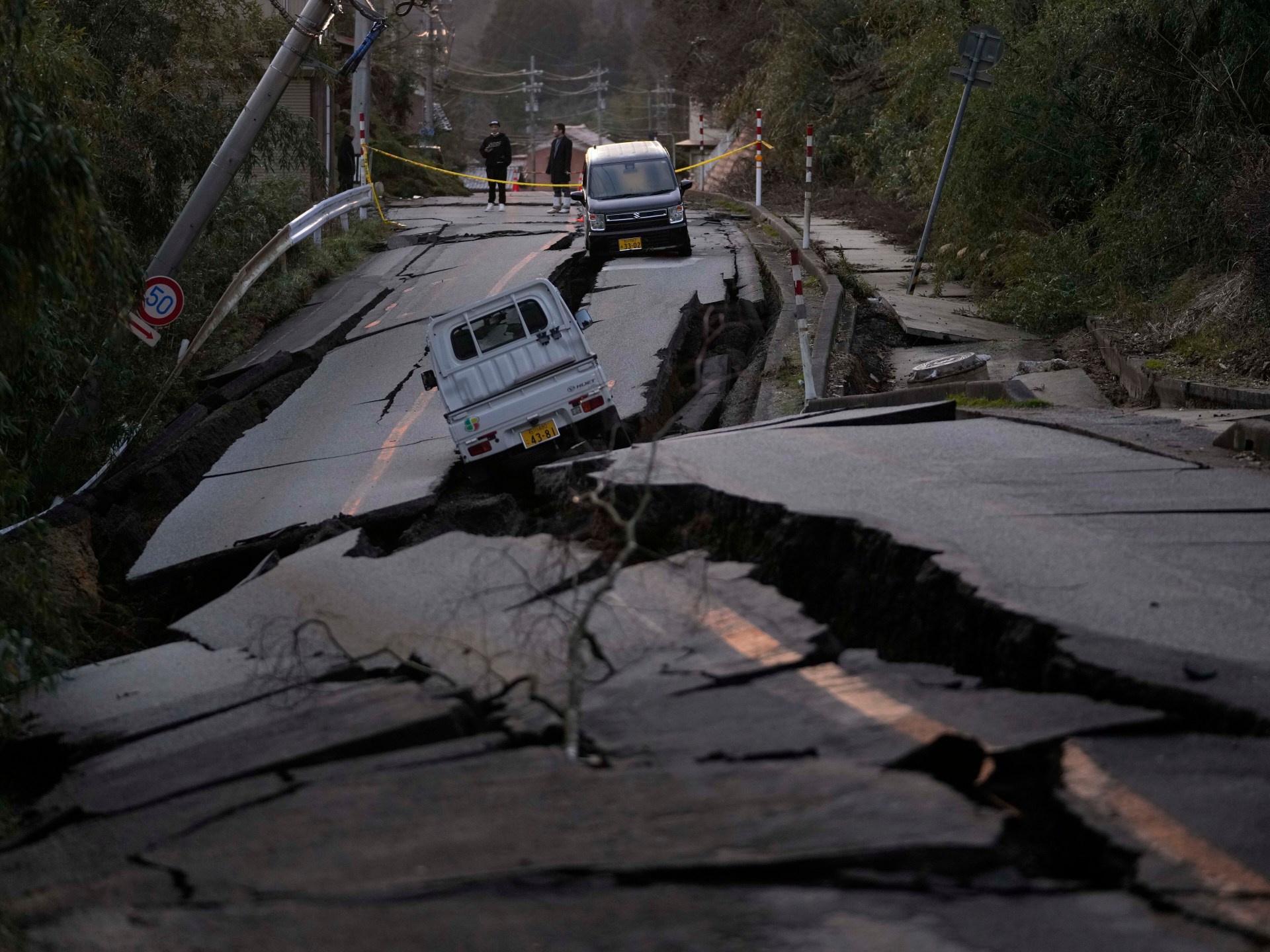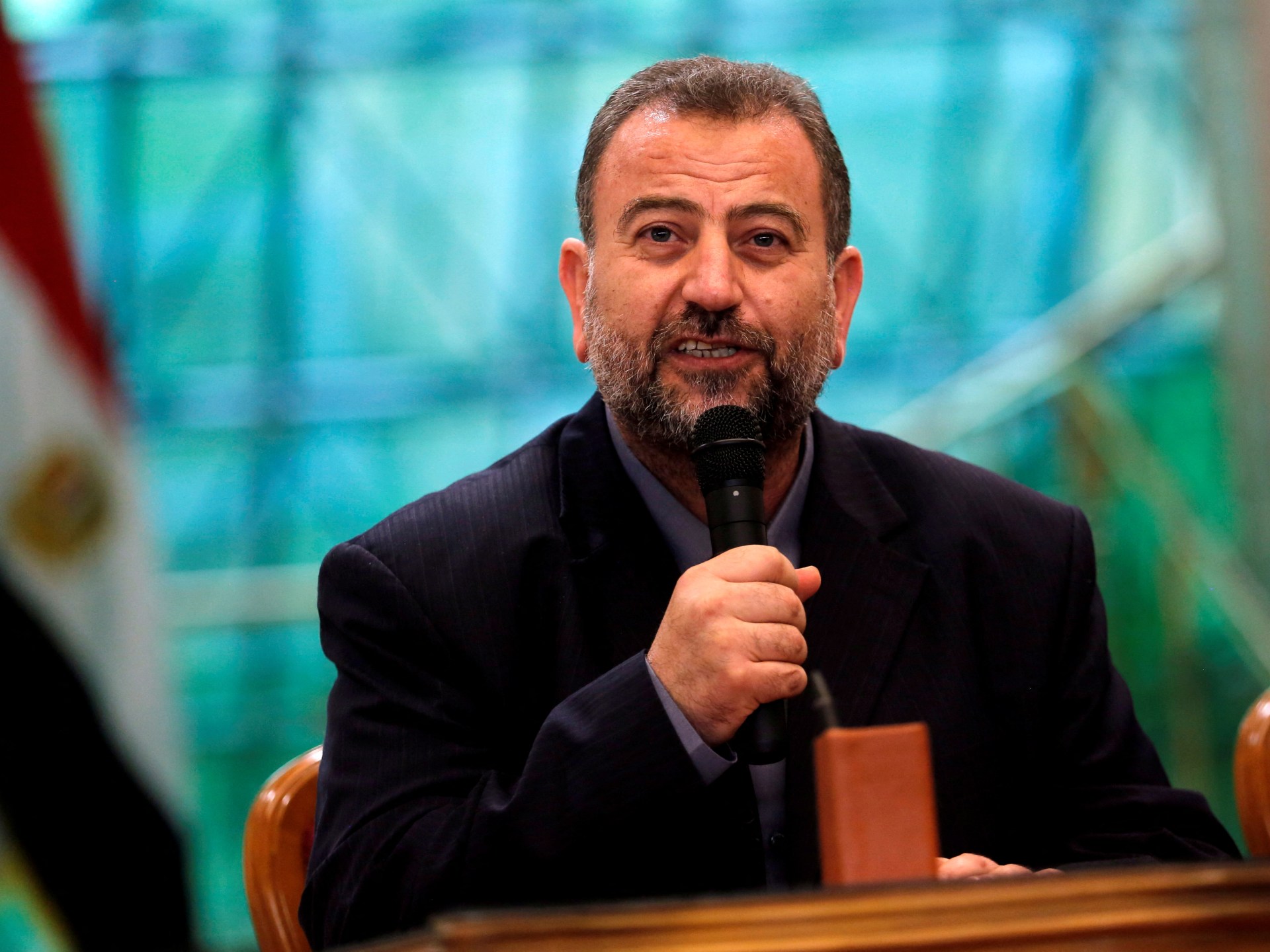Hours after an Israeli air raid struck Gaza City’s Al-Ahli Arab Hospital on Wednesday morning, killing at least 500 people according to health authorities, United States President Joe Biden will land in Israel.
The hospital was housing thousands of patients and other civilians seeking shelter from the non-stop bombardment of the Gaza Strip by Israel since the October 7 attack by the Palestinian armed group Hamas on southern Israel.
Biden’s trip to Washington’s closest ally in the Middle East was planned before Tuesday’s deadly hospital strike and is a high-stakes visit as Israel continues to pummel Gaza in advance of an impending ground offensive.
But Israel’s attack on the hospital has already had diplomatic consequences for Biden. Jordan, which was also supposed to host Biden for a summit with the country’s King Abdullah II, Egyptian President Abdel Fattah el-Sisi and Palestinian Authority President Mahmoud Abbas, has called off the meetings. Biden is no longer welcome in Amman at the moment.
So, what can he achieve in Israel?
What’s the backdrop to Biden’s Israel visit?
By Tuesday, more than 3,000 Palestinians, a third of them children, had died from Israeli bombing since October 7 – and that was before the attack on Al-Ahdi Arab Hospital.
Biden’s trip comes after his top diplomat, Secretary of State Antony Blinken, met Arab leaders last week, most of whom refused to condemn Hamas for its attacks that killed 1,400 people in Israel, including some foreigners.
Biden is expected to land Tel Aviv at 10am local time (07:00 GMT) on Wednesday, where he will meet Prime Minister Benjamin Netanyahu and other senior officials.
According to the US leader, he will receive a comprehensive brief on Israel’s war aims and strategy and reaffirm Washington’s commitment to Israel’s security.
But whether Biden speaks about the attack on Al-Ahdi Hospital publicly, and what he says, will be closely watched for signs of whether the US is recalibrating its stance on the conflict amid growing international outrage over Israel’s devastating bombing campaign on Gaza.
Blinken first announced Biden’s visit at the end of more than seven hours of talks with Netanyahu and other officials on Monday night, during which he said the Israeli prime minister agreed to come up with a plan to get humanitarian aid to Gaza civilians.
Israel has imposed a total blockade on Gaza, trapping its 2.3 million people in the besieged enclave without water, food, fuel and electricity.
Can Biden help with humanitarian aid?
Blinken said the plan is to “enable humanitarian assistance to flow to civilians in Gaza in a way that does not benefit Hamas”, which launched one of the deadliest attacks on Israel in decades.
Yet, while it is unclear what impact Israel’s air strikes have had on Hamas, the bombing has obliterated block after block of residential buildings in the besieged enclave. Schools and hospitals have not been spared either, adding to Gaza’s humanitarian crisis.
Even as Blinken talked about an agreement on humanitarian relief, he did not announce any concrete details and there is no sign that any safe corridors could be set up soon.
On Sunday, he declared that the crucial Rafah crossing – the only path out of Gaza not controlled by Israel – would soon be opened to foreign nationals.
However, the crossing remains closed, including for dozens of trucks filled with humanitarian aid from several countries that have been amassed at the border with Egypt.
Instead, Israel has bombed the crossing four times since then.
Whether Biden can help advance plans to get humanitarian assistance to the 2.3 million Palestinians in Gaza could determine how his visit is viewed outside Israel.
What does it mean for the war?
Biden and other officials in his administration have repeatedly emphasised Israel’s right to “defend” itself and have supported its stated goal of destroying the Palestinian armed group Hamas.
Biden has so far not explicitly called on Israel to show restraint or to stop bombing civilians, ambulances and first responders, or to allow civilians to regain access to food and water, though he has cautioned Israel against going in for an occupation of Gaza.
Israel’s top military spokesperson Daniel Hagari told reporters on Tuesday that Israel has “all kinds of end games” and Gaza’s future will be a “global issue”.
But Israel appears poised to launch a ground offensive into the enclave soon. Many analysts believe that might be delayed at least until Biden leaves Israel to avoid embarrassing the US president.
However, there are signs that Biden’s trip could be aimed at developing a common understanding between the US and Israel on how to pursue the war in Gaza.
US Central Command chief General Michael “Erik” Kurilla arrived in Tel Aviv on Tuesday and is expected to meet top Israeli military officials.
What about Iran’s warnings?
Iran has warned for days that new fronts could be opened in the war and Foreign Minister Hossein Amir-Abdollahian explicitly said on Monday night that Israel could expect “preemptive” action “in the coming hours” if it continues on its current path.
Iran’s Supreme Leader Ayatollah Ali Khamenei said on Tuesday that Gaza’s bombing needs to stop immediately and that Washington ought to be held accountable for the current situation.
Our numerous intelligence reports show that the US is formulating the Zionist regime’s current policy, and what is being done is governed by US policymaking. The US must be held responsible for this situation.
— Khamenei.ir (@khamenei_ir) October 17, 2023
It is unclear if and when – or exactly how – Tehran will get in on the action, but Israel and the US have shown they are wary.
Israel has already bombed airports in Syria several times to address concerns Iran may make a move from there, and Israel and Lebanon’s Hezbollah have already been trading fire at the border, though that fight has yet to escalate further.
Meanwhile, Washington has moved a second carrier and air assets to the region in what has been seen as a warning to Iran as well as the armed groups and campaigns it supports across the region.

 Movie
Movie 6 months ago
143
6 months ago
143 






![Presidents Day Weekend Car Sales [2021 Edition] Presidents Day Weekend Car Sales [2021 Edition]](https://www.findthebestcarprice.com/wp-content/uploads/Presidents-Day-Weekend-car-sales.jpg)



 English (United States)
English (United States)